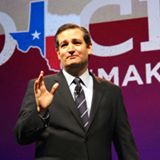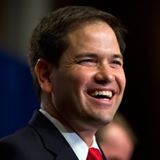
At the First in the Nation Republican Leadership Conference that concluded this past weekend, hopefuls for the party nomination descended on Nashua, N.H., to meet voters in the earliest voting primary state after the Iowa Caucuses. Nineteen speakers came to the “Live Free Or Die” state to stake electoral claims and outline policy positions, although thus far only three have declared their candidacies for the 45th presidency of the United States.
Though not yet officially running, candidates with real chances of capturing the nomination attended including New Jersey Gov. Chris Christie and Florida Gov. Jeb Bush, as did long-shots like former Arkansas Gov. Mike Huckabee and conservative documentarian Michael Lynch.
With Sens. Ted Cruz, Rand Paul and Marco Rubio vying for the Republican nomination in 2016, the time has come to learn more about them. These three men have many similar positions, both socially and fiscally, but there are some differences that could go a long way to propelling one into the nomination and a possible face-off with the presumptive Democratic nominee, Hillary Clinton in next November’s general election.
TED CRUZ

Currently: Junior U.S. Senator for Texas
Age: 44
Professional Background: Cruz attended Princeton University, graduated from Harvard Law School and was a domestic policy advisor to then-Texas Gov. George W. Bush during his first presidential run.
Political Experience: Texas Solicitor General 2003-2008; elected to U.S. Senate in 2012.
ON ISSUES
Cruz often speaks on tax issues and has said that if elected he would abolish the Internal Revenue Service. On foreign policy, he is more interventionist than Paul, though Cruz does favor some isolationist positions, but not to the extreme degree of hawkish U.S. Sen. John McCain.
Because of his law background, Cruz has formed strong opinions on constitutional law as he believes in an originalist reading of the U.S. Constitution — that the document should be read as fixed as of the date of its enactment. This is sometimes called textualism and clashes with more than 200 years of precedent and development of constitutional law.
STRENGTHS
Brevity and sticking to few positions like they are his last two dollars, Cruz often stumps on the same issues; repealing national health care and Common Core state education standards.
WEAKNESSES
Cruz’s political experience is not very broad or deep. His unwillingness to compromise on most issues may turnoff many independent and on-the-fence voters.
DID YOU KNOW?
Along with colleague and rival for the party nomination Marco Rubio, Cruz is one of three Latinos in the U.S. Senate.
RAND PAUL

Currently: Junior U.S. Senator for Kentucky
Age: 52
Professional Background: Paul is a graduate of the Duke University School of Medicine and was trained as an ophthalmologist. He ran his own practice in Bowling Green, Ky.
Political Experience: Elected to the U.S. Senate in 2010.
ON ISSUES
Paul is a self-described “constitutional conservative” and “libertarian conservative” who generally favors smaller government and less federal control over individuals’ choices.
Paul is a vocal critic of the Federal Reserve System that regulates interest rates and believes the free market should instead. He also opposes the federal government using phone records to gather information and track people, believing it is a limitation on freedom. Paul favors widespread reduction of federal spending, lower rates of taxation and a flat tax rate. He is strongly pro-life, believes personhood begins at fertilization and does not favor gay marriage rights, but has said states should decide on their own and has not advanced a federal ban or congressional action to define marriage. Paul has been called an isolationist, but that’s not entirely true as he does support permanent military bases abroad.
STRENGTHS
Paul is able to find a niche of support for various issues that others are totally opposed to, such as granting temporary visas to people who enter the country illegally and by suggesting climate change is real and caused by human activity.
WEAKNESSES
Paul fires up the right wing of the party with passionate speeches on freedom and touches on many Libertarian talking points, though he alternately decides to call himself that. He is consistently conservative, but because of his libertarian streak, he appeals to independent voters and those tired of establishment Republican candidates.
DID YOU KNOW?
Paul served in the 112th Congress with his father Ron, marking the first time a son served in the Senate while his father was simultaneously in the House.
MARCO RUBIO

Currently: Junior U.S. Senator for Florida
Age: 43
Professional Background: Rubio earned a law degree from the University of Miami School of Law and was a West Miami City Commissioner before getting elected to the Florida House of Representatives in 2000.
Political Experience: Florida House of Representatives 2000-2009, elected speaker 2006, elected to the U.S. Senate in 2010.
ON ISSUES
Generally conservative on most fiscal and social issues as well, Rubio favors changes to Social Security including raising the retirement age. He also supports the extension of Bush tax cuts, supports a federal flat tax and opposes the capital gains tax.
STRENGTHS
Like his competitors, Rubio also opposes gay marriage and is pro-life. But in breaking from the pack, he took a position unpopular with other Republicans when he voted for the Development, Relief, and Education for Alien Minors (DREAM) Act. Rubio said being opposed would risk losing more, and further alienating, Hispanic voters.
WEAKNESSES
Rubio fibbed or was unclear about his family background when he related the year and under what circumstances his parents emigrated from Cuba to America. After first stating that they fled the dictatorship of Fidel Castro in 1959 as political refugees, he later changed his story and admitted they had come to the U.S. seeking better economic opportunities in 1956.
DID YOU KNOW?
Rubio attended Tarkio College on a football scholarship for one year and is married to a former Miami Dolphins cheerleader.
Noah Zuss is a reporter for TheBlot Magazine.





